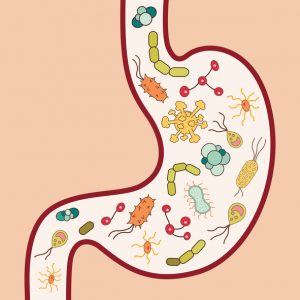 Increased knowledge of how gut bacteria ratios change as a marker of inflammation could help delay the development of Type 1 Diabetes. Researchers from the University of Queensland proposed that monitoring the microorganisms living in the gut may aid in understanding the disease better as a whole.
Increased knowledge of how gut bacteria ratios change as a marker of inflammation could help delay the development of Type 1 Diabetes. Researchers from the University of Queensland proposed that monitoring the microorganisms living in the gut may aid in understanding the disease better as a whole.
Participants in the study were all newly diagnosed with Type 1 Diabetes and were asked to provide a stool sample. The researchers analyzed these samples and found that, “certain proteins can be used to differentiate risk levels.”
UQ Diamantina Institute Senior Research Fellow Dr Emma Hamilton-Williams said: “By studying the stool samples of participants, we found that changes in gut bacteria weren’t just a side effect of the disease, but are likely related to disease progression.”
Research on the topic is new and fairly undeveloped. However, there are plans to carry out further research on the bacteria associated proteins, analyzing why they may signify an increased risk of Type 1 Diabetes expression.
The researchers are hoping to use this microbial information to monitor disease progression or develop therapies aimed at restoring a healthy microbiota in people at risk of type 1 diabetes.
For more information, Join our FREE Getting to the Gut, Meet Your Microbiome –
Live Webinar November 14th, 2018 at 11:30am PST
Read original article in Diabetes Care – Intestinal Metaproteomics Reveals Host-Microbiota Interactions in Subjects at Risk for Type 1 Diabetes – Diabetes Care 2018 Aug; dc180777.
And visit Monitoring gut changes could help delay type 1 diabetes.
Sign up for Diabetes Blog Bytes – we post one daily Blog Byte from Monday to Friday. And of course, Tuesday is our Question of the Week. It’s Informative and FREE! Sign up below!
[yikes-mailchimp form=”1″]









